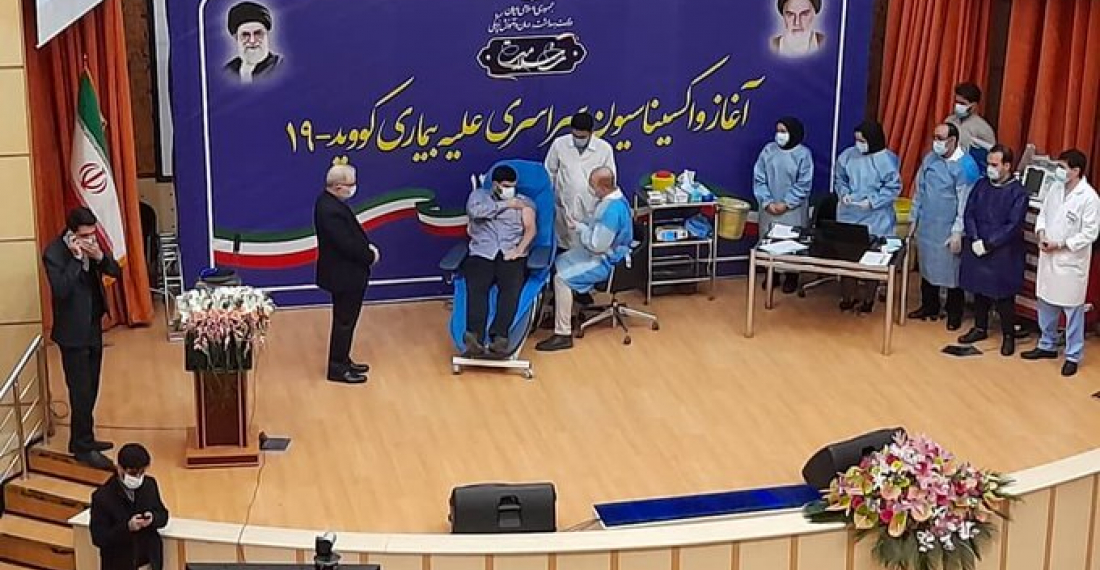Iran began its nationwide vaccination campaign against COVID-19 on Tuesday, using the Russian made Sputnik V vaccine. The first shots are given to frontline health workers. Iran is one of the Middle East's worst-affected countries with 1,481,396 total infections and 58,625 deaths. The Iranian health sector has been under severe pressure throughout the pandemic and the country faced one of the deadliest outbreaks of the illness.
During a ceremony at Tehran’s Imam Khomeini Hospital, the COVID-19 vaccine was first administered to Parsa Namaki, the son of Iranian Health Minister Saeed Namaki.
“Today, the vaccination of nurses, doctors and intensive care unit (ICU) staff begins simultaneously at 625 hospitals. Vaccines from other sources will enter the country by the end of [the Persian calendar month of] Bahman,” which falls on February 18, the health minister said.
Kianoush Jahanpour, the spokesman of Iran’s Food and Drug Organization, said Iran had already received tens of thousands of doses of the Sputnik V vaccine.
They will be administered to 1,000 people per day and the figure will increase exponentially. Iran follows the most commons vaccination strategy which stars with frontline health workers and then proceeds to vulnerable members of the community and those above the age of 65.
President Hassan Rouhani has assured the nation that the imported vaccines are safe and reliable.
“The people should feel confident that all the authorities trust the imported vaccines, and [as officials] we are all ready to get our shots in order to build trust,” he said.
Iran bought two million doses of Sputnik V and would later receive 4.2 million doses of the vaccine developed by AstraZeneca from COVAX, a multi-agency scheme dedicated to assuring fair access to vaccines for low- and middle-income countries. Iran has bought a total of 16.8 million doses via COVAX.
At the same time, Iranian scientists have been working on developing domestic vaccines against the coronavirus, two of which are in the human trial phase.






